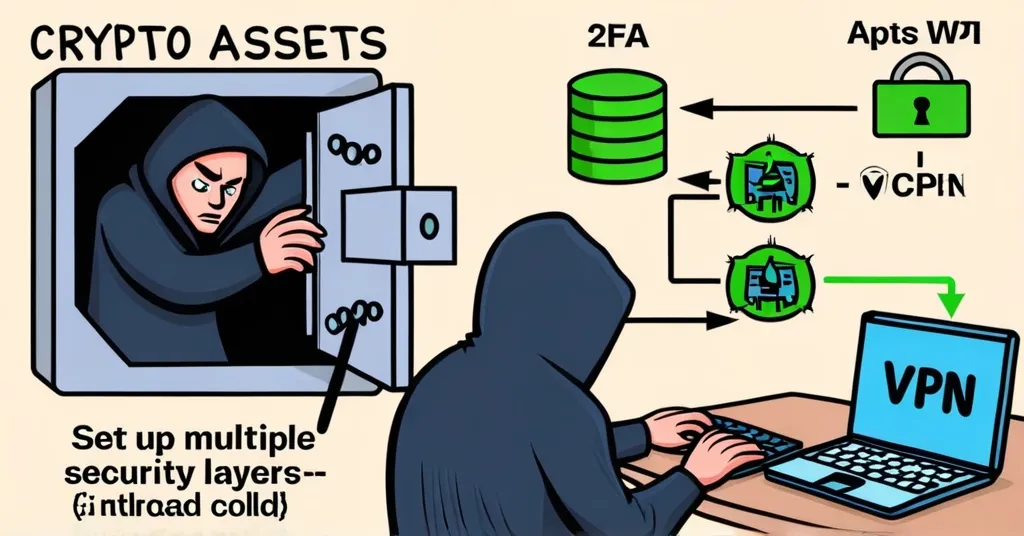Crypto Lawyer John Deaton Warns: Sophisticated Scams Plague Crypto Space

Crypto Lawyer John Deaton’s Stark Warning: Beware of Sophisticated Crypto Scams
John Deaton, a well-known crypto lawyer and ardent defender of XRP, has issued a chilling alert to the cryptocurrency community about the dangers of sophisticated scams. With firsthand experience of a hacker’s attempt to infiltrate his life, Deaton’s message is clear: the crypto space is rife with cunning scammers, and traders must arm themselves with vigilance and robust security measures.
- Deaton warns of sophisticated crypto scams.
- Emphasizes the importance of two-factor authentication (2FA).
- Shares personal experience with hackers.
In a detailed warning, Deaton recounted his own harrowing encounter with hackers who tried to rob him by hacking into his WiFi network, sending deceptive emails, and impersonating customer service reps from a crypto exchange. His experience is a stark reminder that even those deeply involved in the crypto world are not immune to these threats.
Deaton’s ordeal began when he received a seemingly legitimate call from what appeared to be his crypto exchange’s customer service. The caller, armed with enough personal information to seem credible, attempted to manipulate Deaton into revealing his password. “I lied and said I didn’t have my laptop handy and asked him to call me back in 30 minutes… At that moment, I turned off my WiFi, and using cellular service only, I clicked my [crypto exchange’s app] and was able to access my account without issue,” Deaton shared, highlighting the quick thinking that saved him from a potential disaster.
The attack didn’t stop there. Hackers managed to compromise not only his home network but also his business network and even his personal devices, including his cell phone SIM card and Twitter accounts, months later. This ordeal underscores the lengths to which scammers will go to steal cryptocurrency, emphasizing the need for comprehensive security measures.
Deaton’s message goes beyond mere technical advice; it’s a call to the crypto community to reject the notion that victims of scams deserve their fate. “Some people might say or think ‘if you’re dumb enough to share your password, you deserve to lose your [stash].’ No innocent person deserves to be robbed, tricked or cheated out of their hard-earned savings!” he passionately argued. This stance challenges the often harsh judgment within the crypto space and advocates for a more empathetic and secure environment.
While Deaton’s warning is critical, it’s important to recognize the broader context of crypto security. Scammers have become adept at exploiting vulnerabilities, with tactics ranging from phishing emails to exploiting code weaknesses. Major hacks like the Ronin Network, Poly Network, and FTX incidents highlight the real-world impact of these threats, demonstrating that no one is immune.
Two-factor authentication (2FA) is often touted as a silver bullet, but it’s not without its flaws. Research from Cybersecurity Ventures indicates that while MFA (Multi-Factor Authentication) does improve security, its effectiveness might be between 30% to 50%, rather than the often-cited 99%. This is due to vulnerabilities like MFA fatigue attacks, where users are bombarded with authentication requests until they approve access to stop the notifications. Hence, while 2FA is essential, it’s not the only line of defense.
To truly protect against these sophisticated scams, a multi-layered approach is necessary. Beyond 2FA, consider using cold wallets to store your assets offline, VPNs to mask your IP address, and robust anti-virus software to guard against malware. Additionally, strong password practices and regular security audits can help fortify your digital fortress.
The crypto community must stay vigilant and informed. Educating yourself on common scam tactics, such as recognizing phishing attempts and understanding how hackers compromise networks, is crucial. Remember, in the world of crypto, your security is your responsibility.
Key Takeaways and Questions
What are the common tactics used by scammers targeting crypto accounts?
Scammers use sophisticated methods like gaining unauthorized access to WiFi networks, sending fake emails from crypto exchanges, and impersonating customer service to trick users into revealing sensitive information.
Why is two-factor authentication (2FA) important for crypto security?
2FA adds an extra layer of security, making it more difficult for hackers to access accounts even if they obtain passwords or other credentials. However, it’s not foolproof, and additional measures are necessary.
What should individuals do if they suspect they are being targeted by a scam?
Individuals should not click on suspicious links, turn off WiFi if necessary, and use alternative methods like cellular service to access their accounts securely. Educate yourself on common phishing tactics and stay vigilant.
How can personal and business networks be compromised in relation to crypto scams?
Personal and business networks can be compromised when hackers gain access to WiFi networks, allowing them to intercept communications and manipulate emails or other communications to facilitate scams.
Why does John Deaton believe no one deserves to be scammed out of their savings?
Deaton believes that no innocent person deserves to be robbed, tricked, or cheated out of their hard-earned savings, emphasizing the ethical responsibility to protect users from sophisticated scams and advocating for a more empathetic community.



